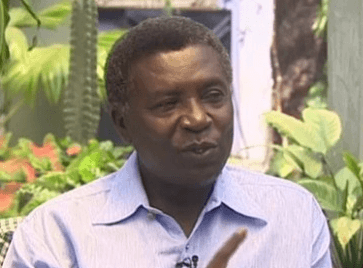Sixty-five per cent of Ghana’s land area prone to desertification – Minister

Professor Kwabena Frimpong-Boateng, Minister of Environment, Science, Technology and Innovation, has said 65 per cent of Ghana’s land area is prone to soil erosion and desertification.
This is caused by a combination of biophysical and socio-economic factors triggering a decrease in annual rainfall and erratic rainfall patterns, which is affecting rural livelihoods in Upper West, Upper East and Northern Regions.
“It is scientifically proven that what has accounted for this present situation is the mismanagement of the ecological systems”, he said.
Professor Frimpong-Boateng said this in a speech read on his behalf at the 8th National Desertification Forum held in Wa to share ideas on challenges, opportunities, and adaptation strategies to help reverse desertification in the region.
The forum was held under the theme: “Improving Land Management: Sustainable Livelihoods” and its slogan was “Set the Pace: Productive Use of Dryland”.
The Environment Minister said the problem in the three regions of the north was becoming severe with serious implications on the livelihoods of the people because land is the major resource from which they earn their living.
Professor Frimpong-Boateng said this has resulted in the continuous mass migration of people to the southern parts of the country or urban areas to work.
He said the uncontrolled socio-economic activities such as deforestation, indiscriminate bush burning, farming close to river bodies, free grazing of cattle by the Fulani herdsmen and inappropriate land preparation for farming largely contributed to processes leading to desertification.
Professor Frimpong-Boateng said the sector Ministry has the relevant policies to help reverse the trend of desertification in the country.
He said at the institutional level, the Ministry needed to intensify its collaboration to deepen the understanding of stakeholders on the importance of conservation in the dry lands.
“There is the need for a comprehensive environmental awareness by relevant institutions on the implementation of sustainable livelihood options for both men and women”, Professor Frimpong-Boateng said.
He said communities must also play the needed role in maintaining protected areas and promoting integrated watershed management to ensure the implementation of community land use plans, while farmer managed natural regeneration should also be encouraged.
Professor Frimpong-Boateng also urged communities to adopt innovative ways of water management for both agricultural and domestic use and rainwater harvesting, should be given special attention.
“As a nation we need to adopt very innovative ways for improving the social, economic, environmental and cultural well-being for the drylands”, he said.
Maalu Pogna, Cate Bob-Milliar Yelbekabe, a development Queen Mother in the Nandom Traditional Area, who chaired the forum, said unreliable rainfall pattern coupled with seasonal disasters has made farming a gamble and a nightmare venture for farmers in the three northern regions.
She called on all stakeholders to combine efforts to help address the issue of land management.
Source: GNA
